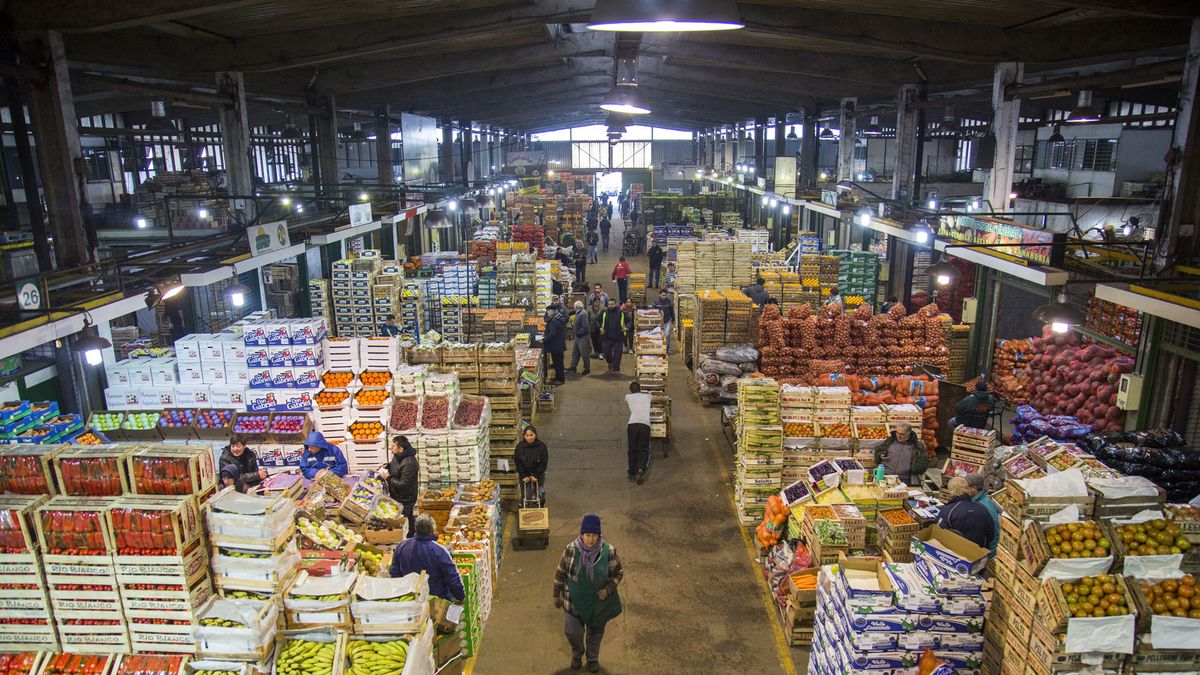He Ministry of Economy decided to give a more leading role to the Central Market. From now on, it will be enabled in the Import Registry and you will be able to directly import the products with zero duty, “creating a greater offer of products without intermediation cost”. The thought behind this announcement is to combat the “abuse of companies by dominant position” and which aims to lower the price of food, after the 10.1% that marked this item in the INDEC measurement.
The objective, they pointed out from the Palacio de Hacienda, is “to reduce the effective price of sale to the public of fresh products (fruits, vegetables, vegetables, meat) and non-perishable dry products (staple foods)”. It is about, they stressed, “defending the power of consumption of people.”
The imported products will then be offered directly to the public and to local retail stores.
At the same time, the Central Market may also generate public/private trust funds for the purchase of food productsin which each local business may be a shareholder, providing funds for centralized purchasing, in order to generate better purchase prices and “eliminate intermediation and abuse by distributors and large companies,” explained Economía.
Another measure is the Suspension of the Payment of Canon for 90 days to the stallholders of the Central Market that comply with the maximum prices set by the Secretary of Commerce. In this way, and in response to the refusal of wholesalers and large companies, Chinese supermarkets and local stores could be supplied with a basket of products defined by the Ministry of Commerce, imported by the Central Market “to break with the abuse of prices made by these companies when supplying these local outlets. This basket would be controlled by the Secretariat so that nearby businesses comply with the maximum sales prices ”, is the official explanation.
More measures against price increases
Among other announcements that went more unnoticed, there is the suspension of antidumping duties in branches of “disseminated inputs”; that is, those that affect a wide spectrum of industrial activities and have a high incidence on the production and price of food.
The objective is reduce the effective price of imports of certain inputs, promote competition in highly concentrated branches and reduce prices throughout the value chain”, they explained from the Palacio de Hacienda.
The instrument to do so will be a ministerial resolution suspending the application of Antidumping Duties due to “circumstances related to the general foreign trade policy and public interest.”
Antidumping measures were normally applied in Argentina to stop the entry of cheap merchandise and “protect” local production. The procedure will begin when the Secretary of Commerce (in this case, Matías Tombolini) raises for consideration and signs an Administrative Act that suspends Measures.
Now, Given the inflationary escalation, the mechanism may be used to facilitate the importation of goods and products in branches where local prices have not responded to the different price controls and agreements.
Economy provided a table that specifies a series of items and products with antidumping procedures, to avoid the importation of merchandise at supposedly “dumping” values.
centralmarket.jpg
Source: Ambito




